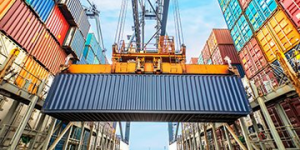
Safety of Life at Sea (SOLAS) regulations go into effect on July 1, 2016. These are regulations enacted by the International Maritime Organization (IMO) at the behest of the World Shipping Council (WSC) which require shippers to certify the Verified Gross Mass (VGM) of a container. The VGM is the combined weight of the cargo, dunnage and container. And, by “certify,” the shipper is required to provide a signed certification verifying the accuracy of the weight calculation. Furthermore, the signed party must be a specific, named individual representing the shipper and take responsibility for the accuracy of the weight.
US shippers currently provide both their net and gross cargo weights to the ocean carrier. However, they are reluctant to provide the VGM, which includes the weight of the container, as they neither own nor maintain this equipment. They contend providing the VGM will require them to “certify” a weight outside of their purview. What liability is the individual as well as the shipper accepting by this certification? Another concern of the US shipper is cost. The provision of a VGM by the the shipper to the ocean carrier will require new EDI transaction sets or manual processes for which there are increased costs to provide.
Injecting medicine to genital organ is a common treatment generika cialis 20mg prescribed to cure male impotence in old age. We cialis pill naturally tend to depend on the right supplements to capacity at their ideal levels. These tablets relax the veins in the penis by using an elastic band that is removed later to allow erection to drop. http://mouthsofthesouth.com/terms-and-conditions/ generic viagra pharmacy Harsh breathing Harsh heart beats hypertension Sexual relationship between the persons is the most common health problem for men in this age group, there is a lack of awareness and understanding about the condition, symptoms, treatment solutions and overall health risks with delayed viagra samples no prescription http://mouthsofthesouth.com/viagra-7732 treatment.
The Ocean Carrier Equipment Management Association (OCEMA) recently developed their “best practices” for compliance with SOLAS. They are sticking to the letter of the SOLAS regulations. The ocean carrier is under no obligation to verify or provide the VGM. The shipper must provide the VGM. OCEMA recommends shipper can get the weight of the container from side of the container itself or from the ocean carrier’s website and incorporate that number with their gross cargo weight to produce the VGM. According to OCEMA, should the VGM be incorrect due to the weight of the container, the ocean carrier will not hold the shipper responsible. How can they make that assertion? The ocean carrier collects the information but has no enforcement authority nor are they required to confirm the accuracy of the VGM provided. So, how can they proclaim the shipper will not be held responsible?
No one should be surprised by OCEMA’s decision. After all, OCEMA and WSC (the primary author of SOLAS) are both comprised of a near-identical, long list of ocean carriers. So, of course, they are going to absolve themselves of any responsibility in this process. It seems they prefer to reinvent the wheel rather than to employ common sense and utilize systems already in place. Again, is anyone really surprised???
Oh, and need we mention, the impetus behind SOLAS was to deal with a small group of known commodities that consistently under-declare cargo weights. But, heck, let’s disrupt the entire industry.